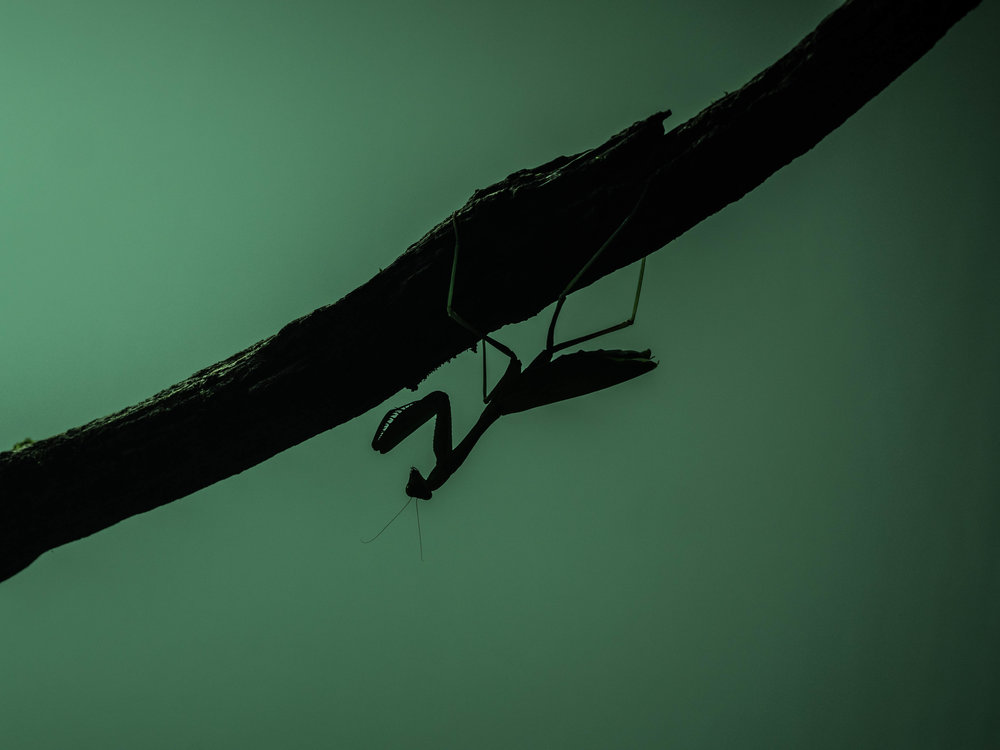
As a graduate research student and a relative newcomer to photography, I’ve been trying to discover my preferred genre. I suppose everyone goes through this initially. However, despite the theme of this article, I don’t think I’m cut out for wildlife stuff; I suspect it is more portraits, especially in a street setting, and landscape for me in the future. But it’s early days yet, and who knows what I’ll end up shooting? Mike asked me to outline my initial experiences and submit a few of my pictures.
I was fortunate to be able to start with a really good camera, the Panasonic Lumix GX8 but with just one lens, the 20mm Panasonic pancake. Since then I’ve added a second-hand Olympus 12-40mm Pro and — the subject of this story — the rather unusual 75mm Olympus f/1.8. I’ve grown to like micro four-thirds, especially for the relatively small size and weight of the system, and I think it a good format for someone starting on the long road to photography. Anyway, back to that 75mm prime lens.
Effective
The unassuming M.Zuiko ED 75mm f/1.8 is my favourite lens because it is so unusual but so effective. And, as I discovered, its 150mm-equivalent focal length is surprisingly effective for zoo shots — just about long enough to get some good closeups of the inhabitants but small and light enough to sit on your micro four-thirds camera all day. DSLR users with their massive long-reach telephotos might look down their noses at this little Oly, but it is a fast prime that really produces the results.
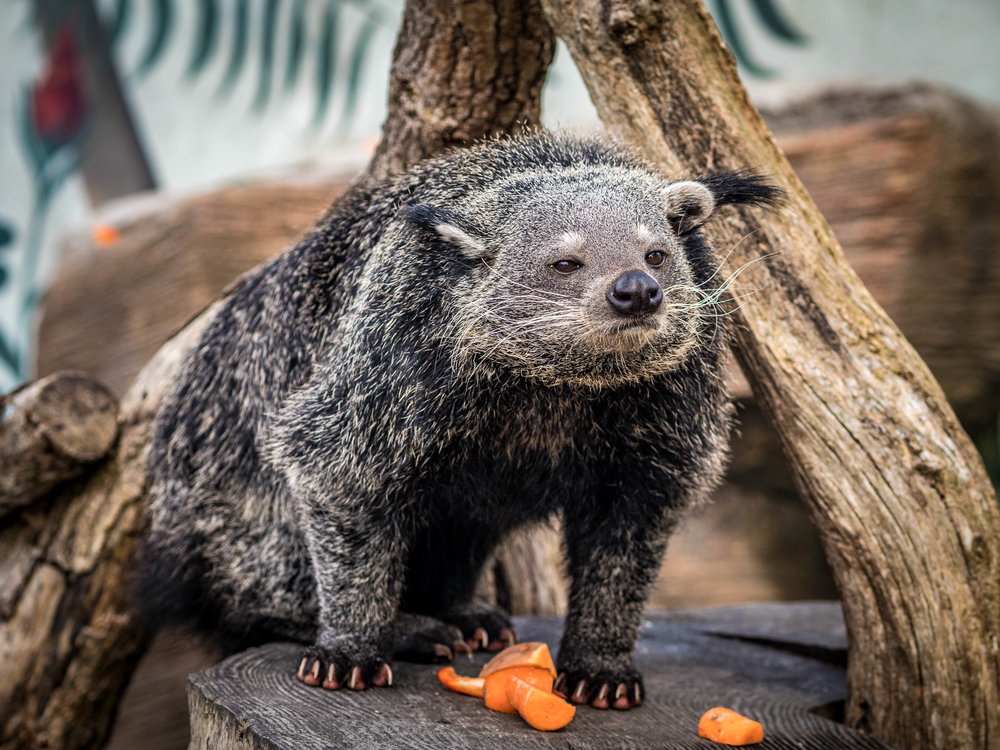
The 75mm was launched in 2012 as one of the premium lenses in the Olympus m4/3 lineup. At the time it was something really special, mostly because of its very fast maximum aperture combined with the long (for a prime) focal length. It was unusual and it still is — something of an oddball but extremely rewarding for the photographer. I am always impressed by the autofocus speed which is still right up there with the best even after six years
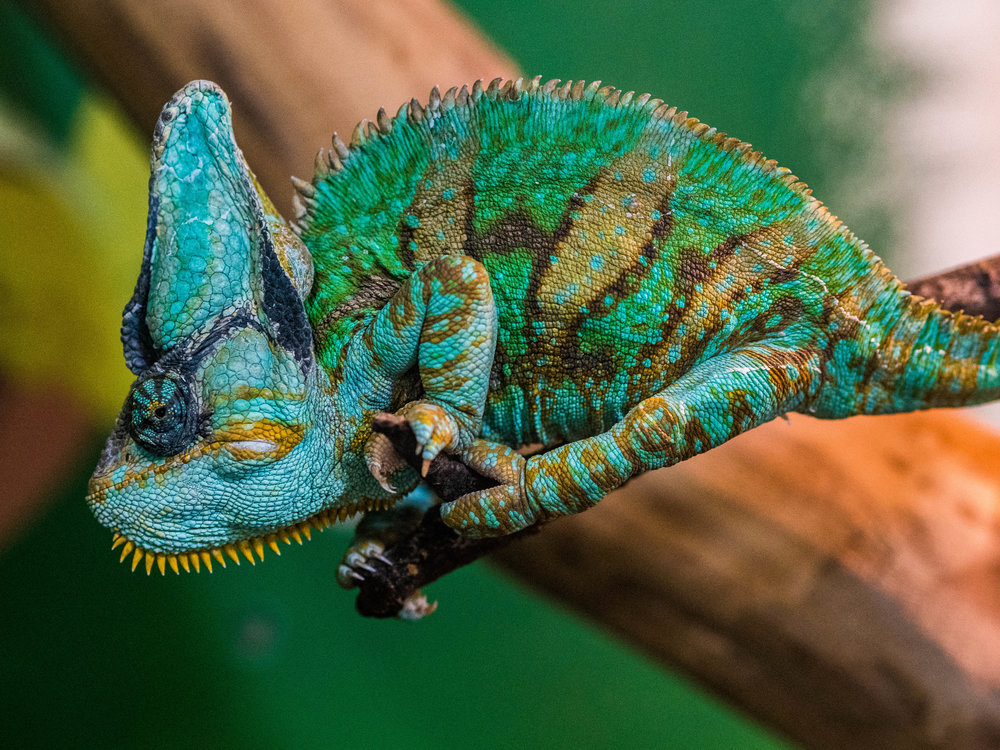
One camera, one lens
Mounted on my Panasonic GX8, this was the only lens I took on a recent visit to Longleat, near Bath. I had dithered on whether or not to pack my usual Olympus Pro 12-40mm f/2.8 but my resolve held. One camera, one lens, no zoom, and it paid off. .
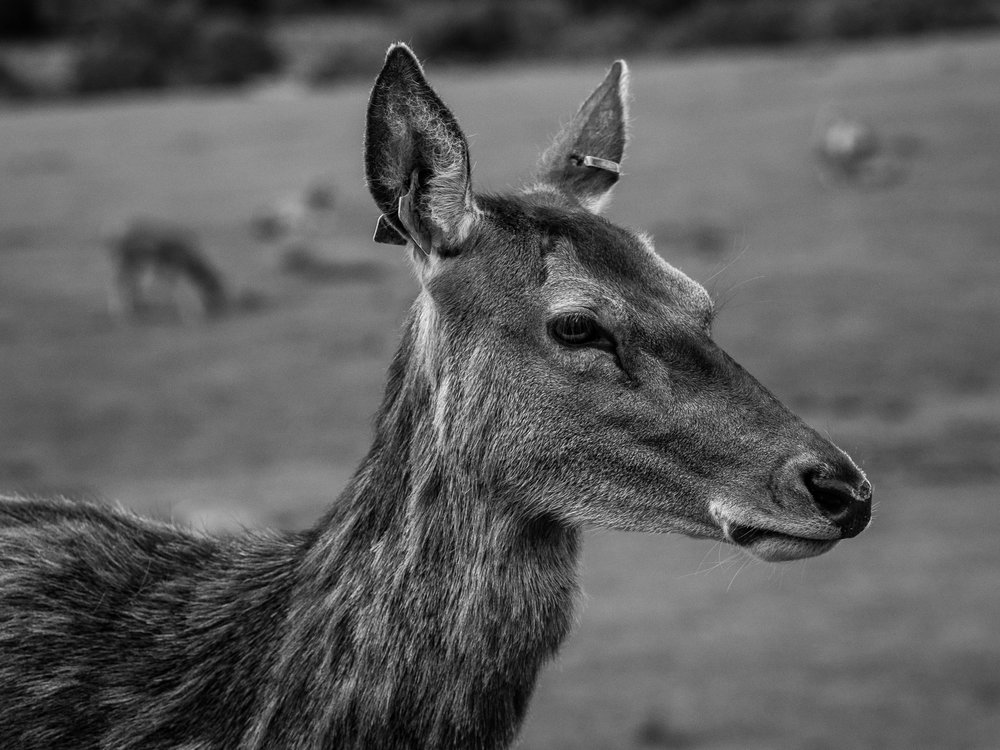
Robin Wong on his SimplyRobin blog describes the M.Zuiko 75mm as “awesome” and I can’t disagree, particularly when you realise it can be had for around £580 new, even cheaper used (not that there are many of them around). It is super sharp and Robin compares it favourably with the Leica DG 42.5mm f/1.2 Nocticron, a lens I’ve had the chance of borrowing and I’d agree with his verdict.
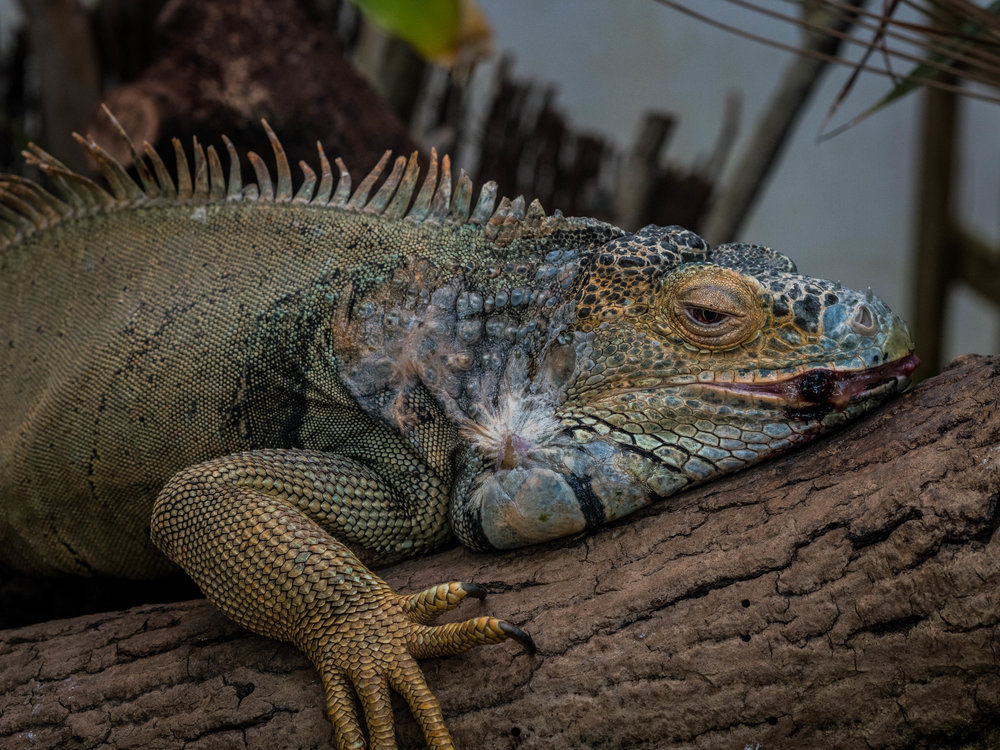
Subject separation
As Robin says, it can be a difficult lens to use in tight situations but in the right circumstances, as I found at Longleat, it really comes into its own. It provides excellent subject separation and an attractive bokeh. For portraits it excels, although the portraits in this article are all of the non-human variety.
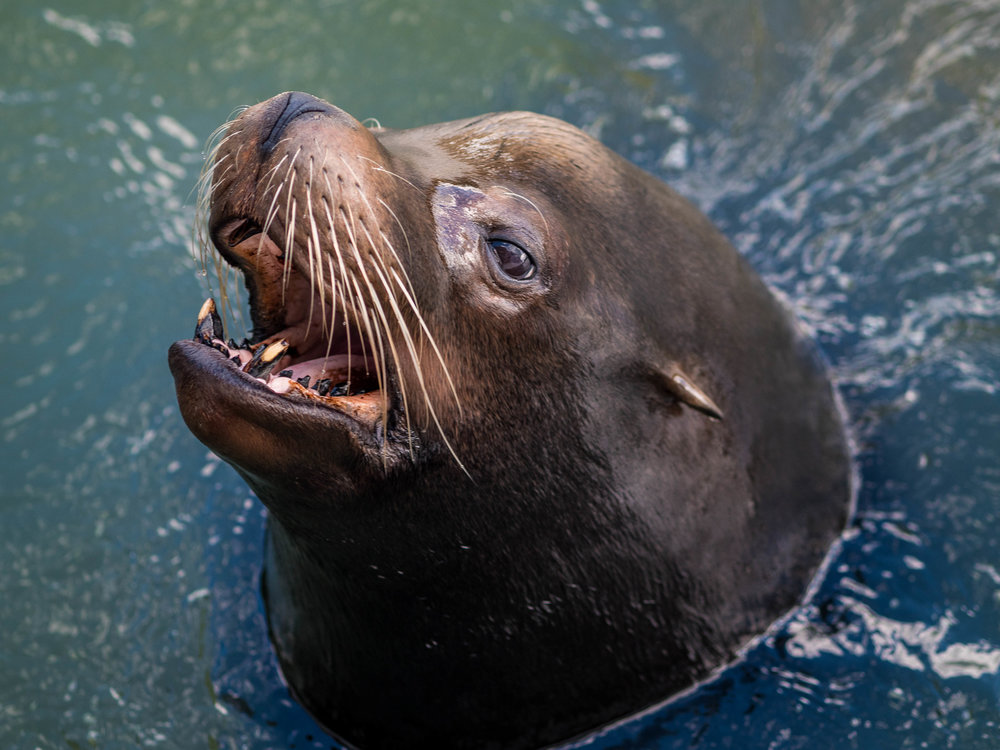
Above all, though, the beauty of this lens is that it is small. It weighs only 325g, lighter than some 50mm lenses, and is a mere 69mm long, with a 60mm diameter and 58mm filter. Furthermore, it is all metal and robust, with a delightfully smooth focus ring.
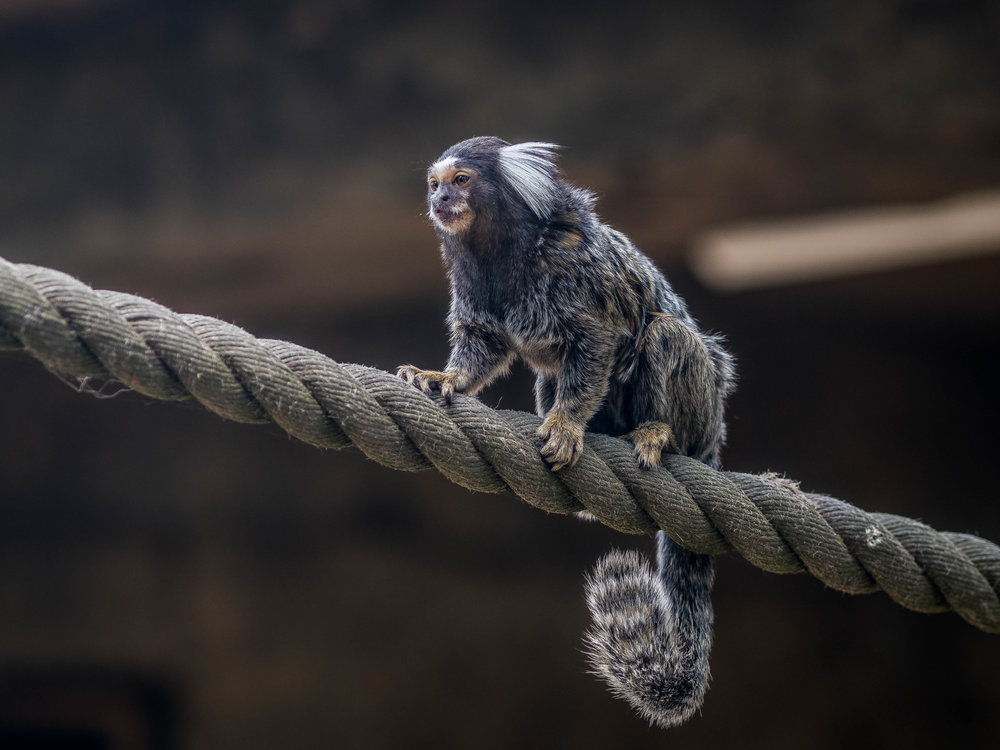
 V311040SU000 2018-03-02 22-27-40.jpg Digital ED 75mm f:1.8 Lens (Silver) V311040SU000 2018-03-02 22-27-40.jpg)
As a specialist lens to pop in the Billingham and have ready for those medium-tele situations, the Olympus takes some beating.
Right: This all-metal lens is remarkably small for its 150mm-equivalent focal length. It is just 69mm long and weighs 325g, yet gives a superb medium-telephoto capability. The Oly makes a great portrait lens with excellent subject separation and impressive sharpness
- Subscribe to Macfilos for free updates on articles as they are published
- Want to make a comment on this article but having problems?

Ich mag die Art, wie du diese Bilder präsentiert hast. Die Ergebnisse der 75-mm-Olympus sind hervorragend. Gut gemacht!
Danke, Rainer. Ich habe letztes Jahr angefangen Deutsch zu lernen, habe aber keine großen Fortschritte gemacht. Vielen Dank für deine freundlichen Kommentare und Unterstützung.
漂亮的照片!
謝謝, David.
Very nice photographs Ken you did well and i wish you best for your new photoraphic career,
Thank you very much, Stephen.
More Mystical Magic!
Thanks very much, John.
Very convincing and enjoyable portrait of a lens and portraits from a zoo !
With yours and others’ good input on MFT here on macfilos, I could almost feel the time has come to sell off everything and go MFT !
Glad you liked them, John. I don’t have much experienced of APS-C or full frame but I’ve borrowed a camera or two for a few hours. I have no complaints about MFT, though and it has been good for me as a learner. Thanks
Lovely photos Ken. The access to the animals in Longleat seems to be a lot better than in Dublin Zoo, which is a very old and traditional zoo. The 75mm f 1.8 lens reminds me of the 56mm f 1.2 Fujfilm lens, but that only gives me about 85mm, whereas the 75mm Olympus lens gives 150mm in ‘real money’. You have used it very well.
William
Many thanks William, yes some of the animals have good access and I was surprissed how near I could get even with a 75mm lens.